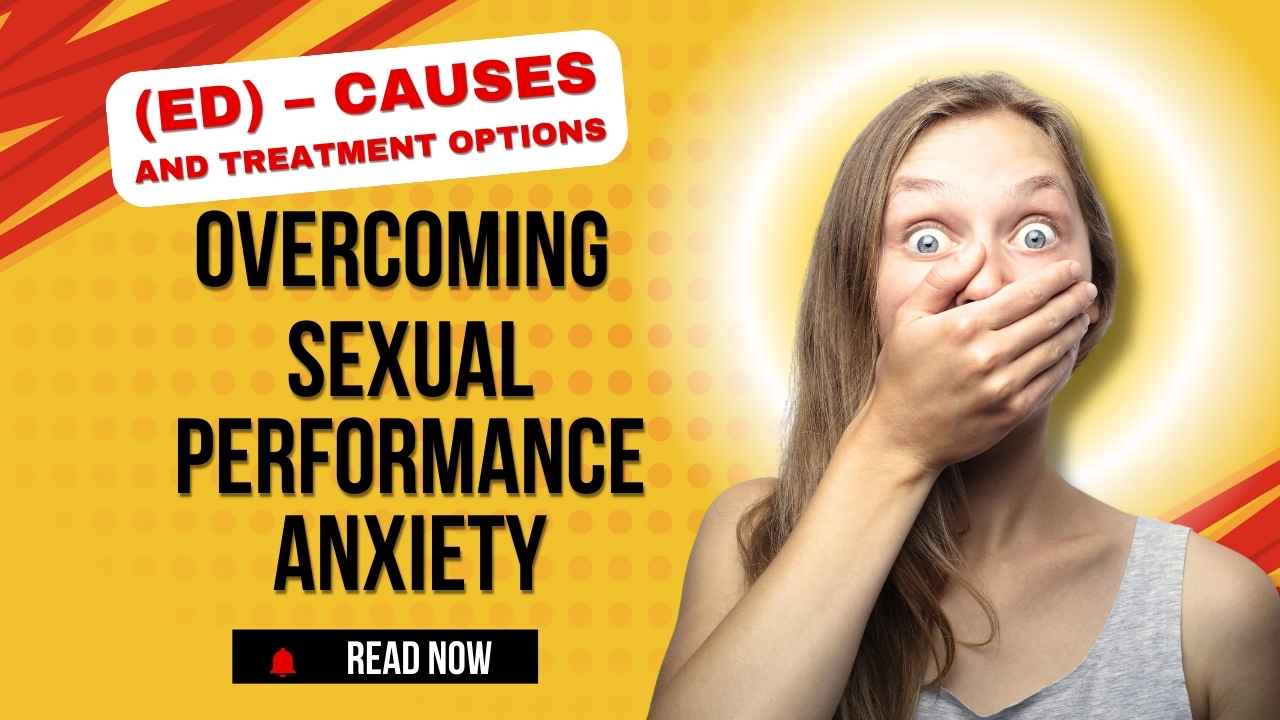Overcoming Sexual Performance Anxiety and its Link with Erectile Dysfunction (ED)
Introduction: Sexual performance anxiety is a common concern that can lead to erectile dysfunction (ED), affecting individuals of all genders. This topic is significant because understanding the link between anxiety and ED can help many overcome these challenges. In this post, we’ll delve into the causes of performance anxiety and ED, explore how they are interconnected, and provide coping strategies. You’ll learn why addressing these issues is vital for maintaining healthy and fulfilling relationships.
Understanding the Link Between Performance Anxiety and ED
The Connection:
Performance anxiety and ED are often linked due to psychological and physiological factors. Stress and anxiety about sexual performance or the pressure to please a partner can lead to a reduced ability to achieve or maintain an erection. This vicious cycle of worry can exacerbate the issue, leaving the person feeling trapped in a loop of anxiety and dysfunction.
Psychological Impact:
Feelings of inadequacy or low self-esteem due to perceived failure in sexual performance can lead to physical symptoms of ED. When anxiety takes over, it can cause physiological changes in the body that interfere with the normal sexual response.
Causes of Performance Anxiety
Negative Self-Perception:
Performance anxiety often stems from negative thoughts about one’s ability to perform sexually. Concerns about body image, penis size, or perceptions of masculinity can weigh heavily on an individual’s mind, leading to increased anxiety during intimate encounters.
External Stressors:
Factors such as relationship issues, work stress, or financial problems can contribute to heightened anxiety levels. Managing these external stressors is crucial as they can inadvertently affect sexual confidence and performance.
Causes of Erectile Dysfunction (ED)
Hormonal and Neurological Factors:
ED can result from a complex interplay of hormonal imbalances, neurological issues, and circulation problems. These physical factors can be exacerbated by the mental and emotional strains associated with performance anxiety.
Lifestyle and Health Influences:
Chronic illnesses, smoking, alcohol or drug abuse, and the use of certain medications can compound the risk of ED. Addressing these health concerns through lifestyle changes and medical intervention can reduce their impact on sexual performance.
Coping Strategies and Treatment Options
Mental Health Support:
Cognitive-behavioral therapy (CBT) and counseling can help individuals address the root causes of performance anxiety and develop healthier ways of thinking. Therapy can also aid in improving communication skills with partners, fostering a more supportive and understanding relationship.
Lifestyle Modifications and Medical Interventions:
Adopting a healthy lifestyle through regular exercise, balanced nutrition, and stress management techniques can significantly improve sexual health. In more severe cases, medical treatments such as ED medications or hormone therapy may be necessary.
Conclusion
Summary of Key Points
We explored the complex relationship between performance anxiety and ED, looking at their psychological and physiological causes. We highlighted the importance of addressing negative self-perceptions, managing stress, and promoting overall health to mitigate these issues. Understanding these factors provides a clearer path to overcoming performance anxiety and related ED.
Call to Action
If you or someone you know is experiencing performance anxiety or ED, consider reaching out for professional help. Join our newsletter for more tips on maintaining sexual health, or share this post to help spread awareness.





